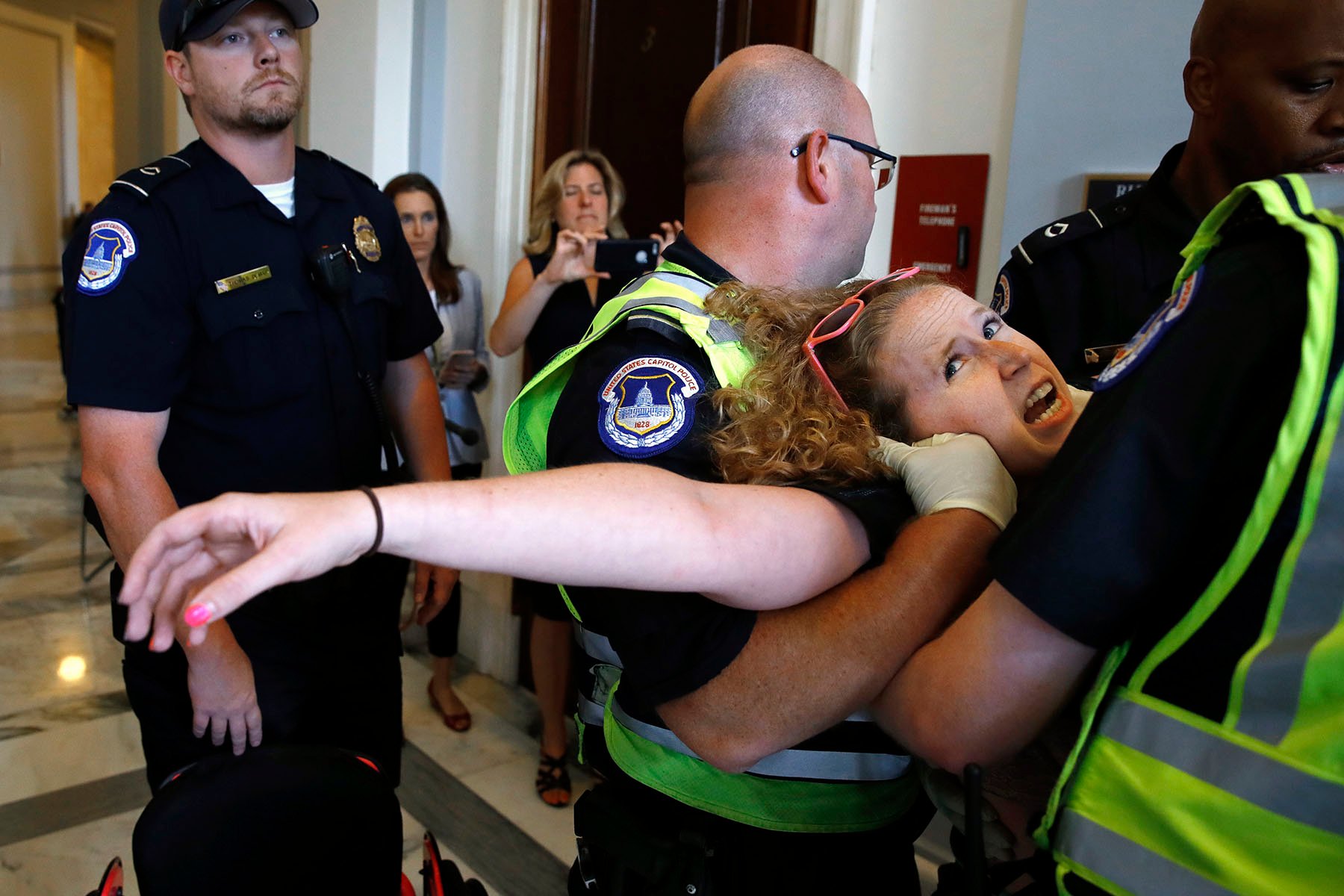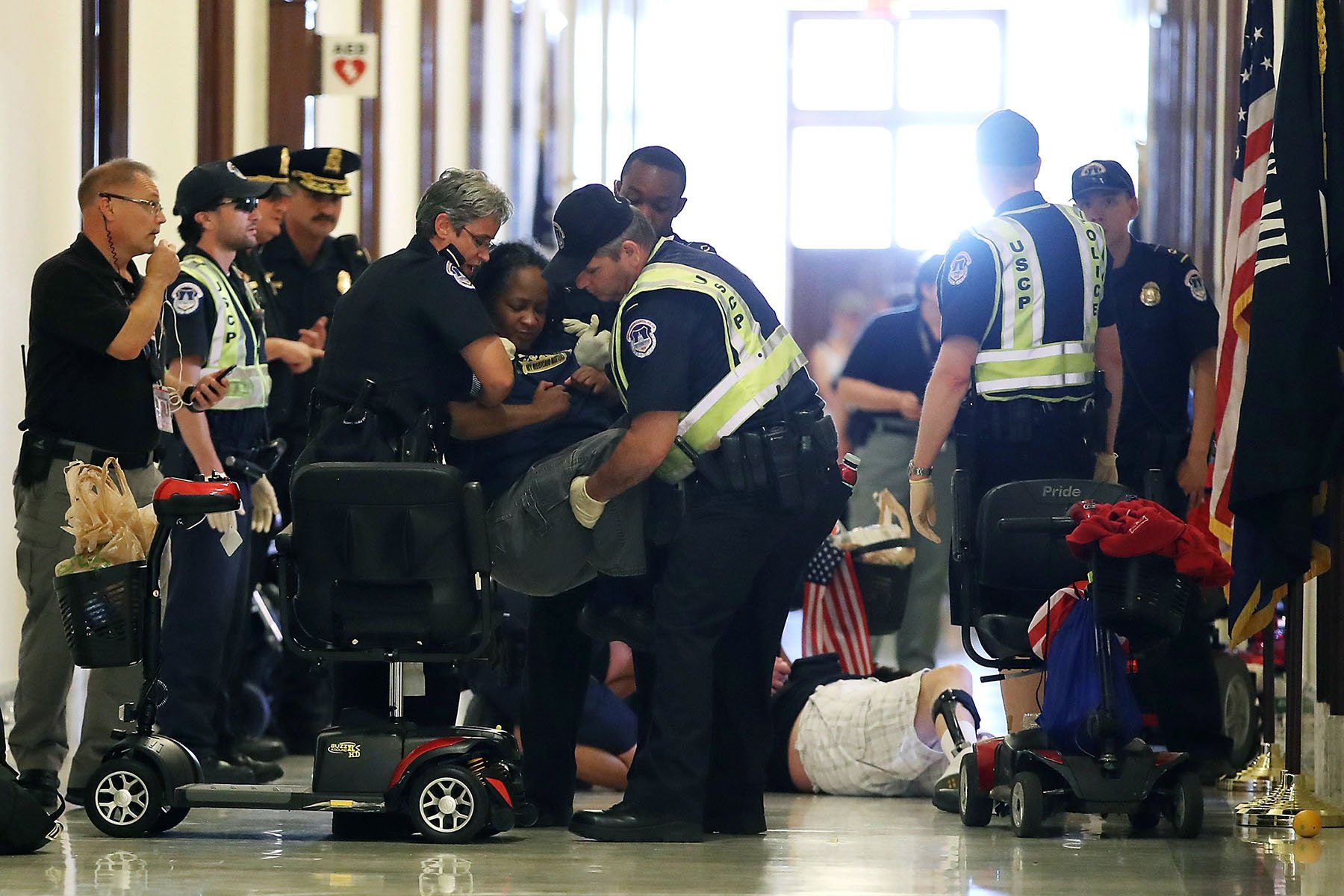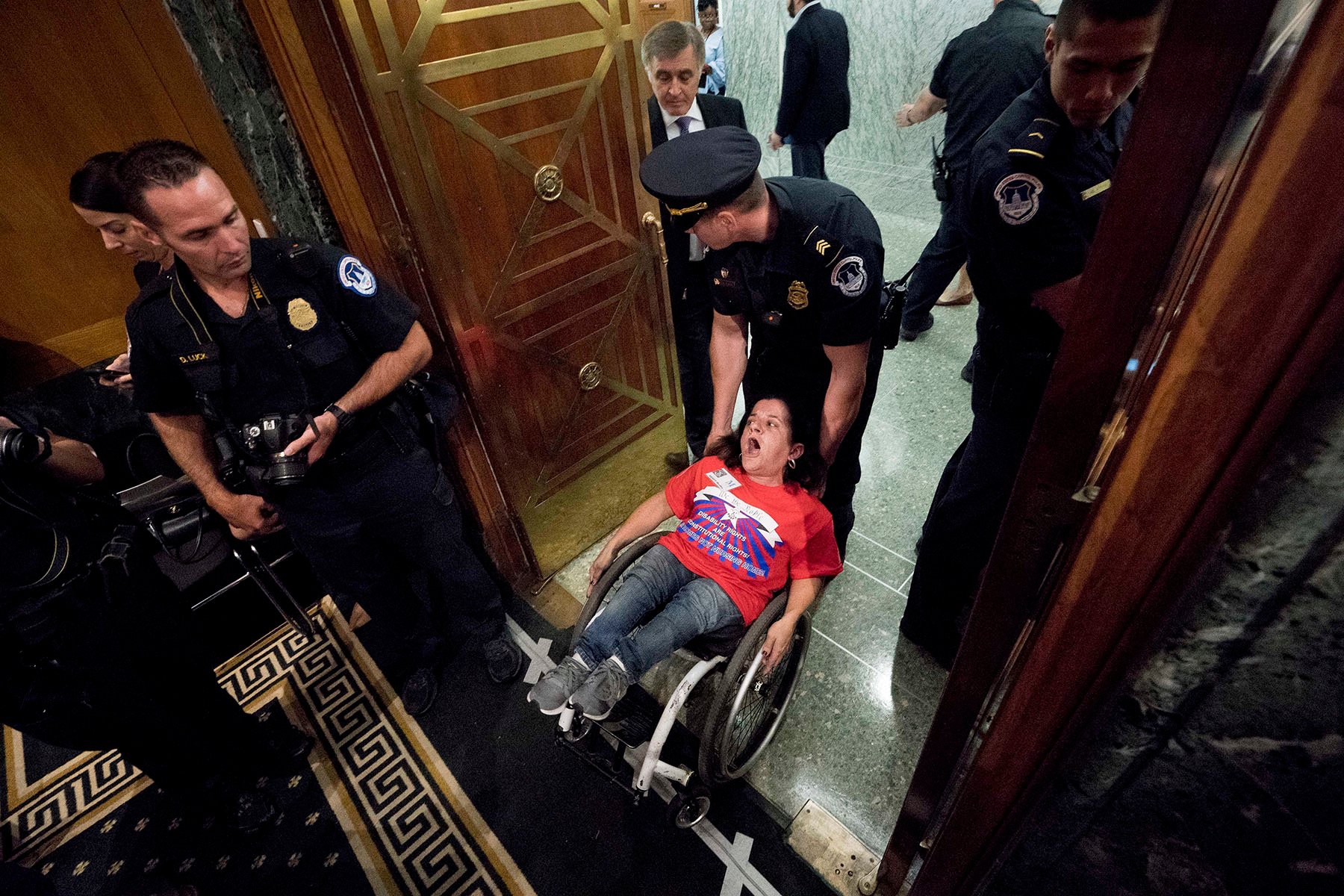Your trusted source for contextualizing the news. Sign up for our daily newsletter.
In 2017, then-President Donald Trump’s administration and a Republican majority Congress attempted, repeatedly, to repeal and replace the Affordable Care Act (ACA), more colloquially known as Obamacare. But at the first presidential debate between Trump and Vice President Kamala Harris on Tuesday, Trump told a different story.
“I had a choice to make: Do I save [the Affordable Care Act] and make it as good as it can be or let it rot? And I saved it,” Trump told debate moderators, in response to a question about his plans for the popular health care law if he wins the 2024 election.
The Affordable Care Act, passed in 2010, expanded private health insurance coverage to millions of Americans who may otherwise have gone uninsured. It also prohibited insurance companies from denying coverage for “pre-existing conditions” – any disability or health condition predating purchase of the insurance. Republicans criticize the law for generating higher premiums, although many experts disagree it has done so.
Efforts by Trump and other Republican lawmakers to repeal and replace the Affordable Care Act failed. His claim that he “saved” it came as a surprise to many of the disabled protesters who used their bodies to try to block Republican efforts.
Anita Cameron, a disability activist and movement elder who has been arrested over 100 times during her protest career, took particular umbrage with Trump’s claims.
“I was laughing. Dude, what did you do? I know what I did and what people around me did. When me and my friends, other disability rights and disability justice activists, were getting arrested, I don’t recall you being there,” Cameron told The 19th.
Cameron’s sentiment is shared by her fellow disability activists and advocates who participated in the 2017 protest movement to stop the repealing and replacement of the Affordable Care Act.
“When [President Trump] said last night that he saved the ACA, it was incredibly insulting. Because we did that. We risked injury. We put our bodies on the line to demand that they save our health care,” Colleen Flanagan, told The 19th. Flanagan, who lives in Boston, is a little person and uses a wheelchair, she understood her life was on the line too. The Affordable Care Act prohibited health insurance companies from denying coverage to those with “pre-existing conditions” — like the osteogenesis imperfecta Flanagan was born with.
Flanagan was arrested over a dozen times that summer in various parts of the U.S. Capitol as part of the protests organized by ADAPT, a grassroots disability protest organization.
“I was one of the ones dragged out of [Senate Majority Leader] Mitch McConnell’s office. I got dragged out of [then-Senator] Ron Portman’s office. It felt like a matter of life and death,” Cameron told The 19th during a 2023 interview.

Flanagan stressed not only the physical danger she and other protesters faced that year fighting for their health care, but also the expense.
“Myself and other people with disabilities rely heavily on the health care system to be able to work, to be able to raise families, to be able to aspire towards the American dream. We went down to Washington, D.C. We spent our own money, our own time because President Trump threatened to destroy the health care system as we know it,” Flanagan said.
Laura Halvorson, 40, lives in San Antonio, Texas. She has muscular dystrophy and uses a wheelchair. She participated in a number of ADAPT actions in 2017, including a “die-in” at McConnell’s office. She was surprised that Trump would make a claim as audacious as saying he “saved” the Affordable Care Act.
“I don’t know how he honestly thinks voters do not remember him saying he was going to repeal the ACA at the start of his presidency in 2017. Even after multiple failed legislative attempts,Trump and his administration even tried to get [the Supreme Court] to overturn the ACA. I would say trying to destroy the ACA is the opposite of saving it,” she told The 19th.
Halvorson credits a number of people and groups with saving the Affordable Care Act. Trump is not among them.
“A broad coalition of activist and advocacy groups from across the country, as well as constituents being outspoken to their elected officials, came together to save the ACA. These folks, along with Senator [John] McCain’s infamous thumbs down vote saved the ACA,” Halvorson said.
Stephanie Woodward, 36, did not watch the entire debate. She recently gave birth to premature triplets who are still in the neonatal intensive care unit. She gave her interview while holding one of them. She and her family live in Rochester, New York.
“I believe we’re on day 50 in the NICU, not something that would have been possible for our family without the Affordable Care Act. My husband and I both have preexisting conditions, and now our children, by being born, do too. I think the actions we took back in 2017 are directly impacting my life at this very moment, as I sit holding my baby,” Woodward said.
Woodward uses a wheelchair. Images of Capitol police dragging her out of it to arrest her became some of the most iconic of that summer.
The 19th shared Trump’s full debate answer on the Affordable Care Act ahead of the interview.
“My first thought when hearing Donald Trump said he saved the ACA was: Why was I arrested 17 times that summer protesting against gutting the ACA?” Woodward said. “I believe that the American people saved it, and I’m just grateful legislators listened to the American people.”
During his debate answer, Trump did not confirm or deny he would again attempt to repeal and replace the Affordable Care Act.
“What we will do is, we’re looking at different plans. If we can come up with a plan that’s going to cost our people, our population less money and be better health care than Obamacare, then I would absolutely do it. But until then I’d run it as good as it can be run,” Trump said.

Moderator Linsey Davis followed up with a more direct question: “So yes or no, you still do not have a plan?”
“I have concepts of a plan. I’m not president right now. But if we come up with something I would only change it if we come up with something better and less expensive. And there are concepts and options we have to do that. And you’ll be hearing about it in the not-too-distant future,” Trump said.
Woodward and her fellow protesters, former and current, are not convinced.
“Cuts to the ACA mean cuts to disabled lives. Cuts to Medicaid mean cuts to disabled lives,” she said.
If another attempt at repealing and replacing the Affordable Care Act happens, disabled advocates say they are ready. But their response may look different than it did in 2017. Many advocates have had to adjust in light of the ongoing risk of COVID-19. Halvorson, for example, uses a portable ventilator to breathe and is at risk of severe complications from the virus.
“While my days of direct action are probably over unless things change with the ongoing threat of COVID for myself and others who are immunocompromised, I will do everything I can to fight and speak out against any attempt to repeal the ACA,” Halvorson said. “If it were to happen, I would hope that disability groups join together again and fight … and also find ways for people to participate COVID safely and remotely and not leave COVID-conscious disabled activists by the wayside.”
To check your voter registration status or to get more information about registering to vote, text 19thnews to 26797.





